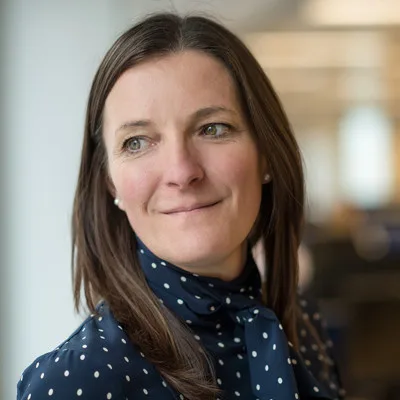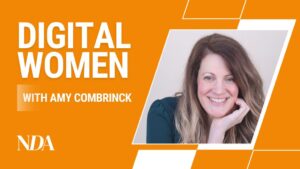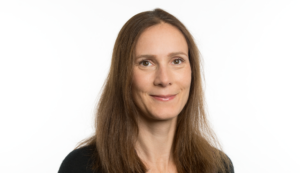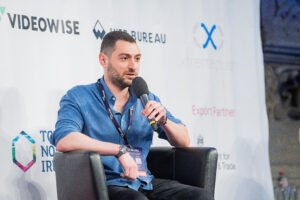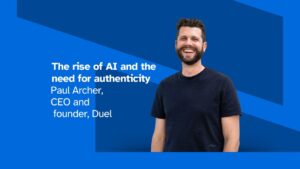Global advertising technology company The Trade Desk recently appointed Clare Dyer as Vice President of HR, EMEA. Based in London, Dyer will be responsible for leading the company’s human resource strategy and operations across the region. Her team is responsible for developing and managing employee programs to further develop and grow the unique culture at The Trade Desk.
Dyer founded Asima Coaching in 2019, before qualifying as an Executive Coach and pursuing her passion for employee engagement and coaching. Previously, she served as Chief People Officer at Brandwatch and held a number of HR leadership roles at BT, KCOM and BBC Television.
New Digital Age (NDA) spoke to Dyer to find out more about her new role and her plans for the coming months…
NDA: Congratulations on your new role – what will be your priorities over the first few months?
Clare Dyer: The Trade Desk is experiencing rapid growth at an exciting time for the industry. Having said that, we are only 2% of the way through our mission to build a better media ecosystem for everyone. It’s the people behind The Trade Desk that are going to carry us forward on this journey towards 100%. With that in mind, I am recruiting at all levels for roles across our EMEA HR Business Partner team, so we’ve got the best people to guide our colleagues into the next era of the Open Internet. We’re looking for top talent who align with The Trade Desk’s DNA and can bring some fantastic expertise – and it doesn’t have to stem from ad tech either.
One of the things that first attracted me to The Trade Desk was the sense of connectivity and collaboration. I truly believe these are just some of the elements that make us so successful. I am committed to maintaining those values as we continue to grow, so as a team we will be looking at the initiatives we can deploy to stay connected and collaborative at scale.
Finally, I want to get underneath the structure of the organisation and understand how we work and where the opportunity lies for us to be even more impactful with our approach. Do we have all the elements to succeed in our mission? I believe we do, but it’s about leveraging what we already have and building on it to make it even stronger.
What sort of skills are most in demand at the moment in your sector?
Advertising is undergoing one of the biggest changes yet as the end of cookies fast approaches. Brands are therefore getting to grips with how they can continue to target customers in a transparent and privacy conscious way. Hence, new identity solutions will be key for advertisers to understand how their audience is engaging with their content.
But someone has to have the skills to uncover the trends and patterns within the data that emerges from these identity solutions. That’s where data analysts and scientists come in. And the demand for these individuals is only going to soar. They have a strong ability to interpret and derive insights from big data sets on consumer behaviour, which will help advertisers adjust their approach accordingly.
The industry also needs engineers to innovate and improve any solutions they are leveraging to make better business decisions. However, the supply of these skills hasn’t reflected the growth in demand. This is why brands should lean on the experts with a breadth of internal technical knowledge and consultancy skills. They can act as a sounding board and understand a business’ goals and work together to help reach them.
How can digital media employers keep track of emerging skills gaps in their workforce?
The first step is to be really diligent when it comes to workforce planning. Employers need to understand the strategic skills that are critical to driving the business forwards. Whether that’s through partnerships, training, networking or recruitment, there are a number of ways businesses can lean on different approaches to gain those skills and fill the gaps.
It’s also important to encourage constant communication and collaboration across any organisation. Business leaders need to realise where their teams need support, in order to be successful on an immediate and long-term basis. At the same time, employees should feel empowered to speak up when they feel they are missing a skill that will enrich them for the greater good of the organisation. This ensures all parties are aware of any emerging skills gaps and take the necessary steps to close the gap as quickly and as effectively as possible.
What attracted you to a career in HR?
I have always been curious about the paradox of being human – our uniqueness yet innate commonality. It’s amazing what can happen when you embrace these paradoxes behind a mission or purpose. HR provided me with the perfect opportunity to explore this in different settings and contexts. I have loved helping organisations and its people grow and scale, while adapting and responding to the constantly changing world around them.
Alongside my role as a HR leader, I am also a coach and love combining these two elements in my life. I enjoy coaching both businesses and people, so working in HR enables me to do that at scale. At The Trade Desk, I am lucky enough to be able to do this across multiple countries and empower my regional leads to follow suit.
The business has recently established an internal Management Community to empower our managers with the opportunity to learn, connect and collaborate across the region. We can also bounce ideas off each other to understand how we can better our approach for the benefit of The Trade Desk community. This also allows us as an HR team to improve how we work and what we can offer that continues to remove barriers and enables people and teams to grow.
What’s your top interview tip for candidates?
Show up as yourself. Any company should embrace everyone’s uniqueness and individual traits and I know The Trade Desk really stands for that. The company made me feel welcome from my first interview which meant I was relaxed and could showcase my capabilities without judgement. That mentality is reflected in the day to day running of the business and as a result, everyone brings their best selves to work. Embracing individuality is innate here. Everyone is curious, dedicated and incredibly kind. We’ve created a positive, collaborative, and enriching environment which is something to be really proud of and I am committed to maintaining.


